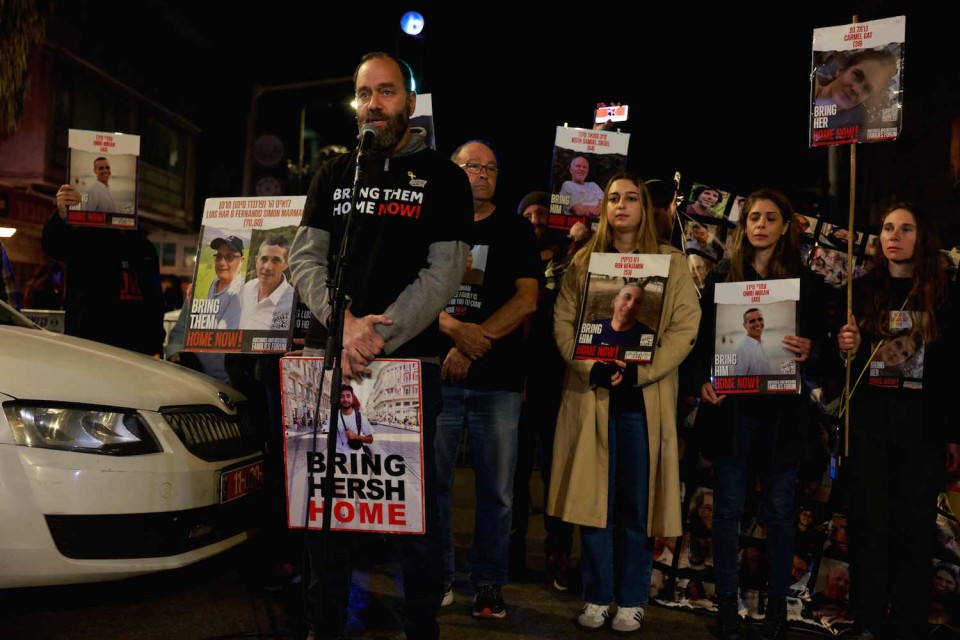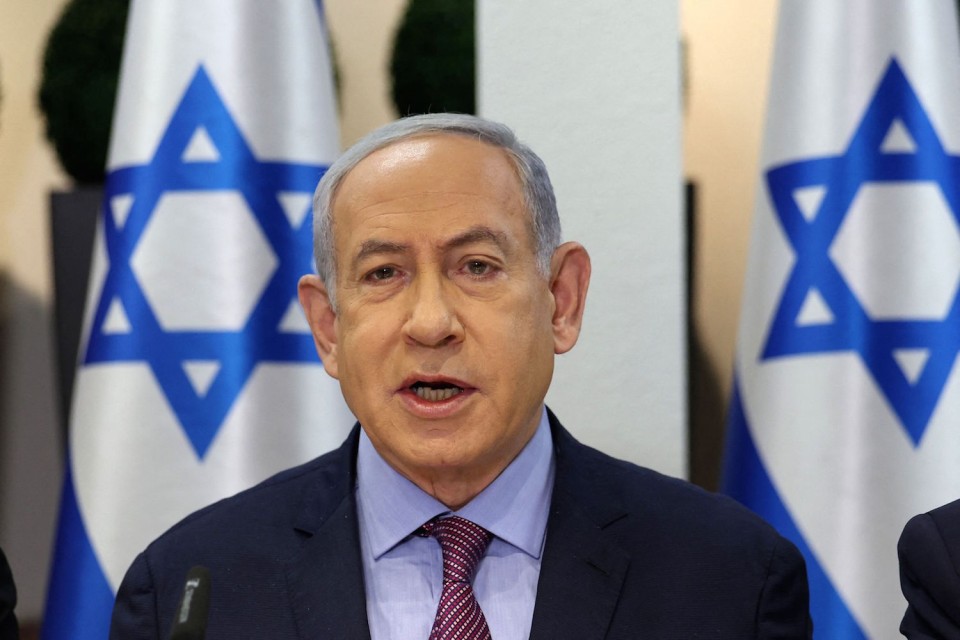

JERUSALEM, Jan 21, 2024 (AFP) – Israeli Prime Minister Benjamin Netanyahu said on Sunday he had rejected conditions demanded by Hamas militants for the release of hostages, hours after the group released a report justifying its October 7 attack on Israel.
“In exchange for the release of our hostages, Hamas demands an end to the war, the withdrawal of our forces from Gaza, the release of all murderers…. If we accept this, our soldiers have fallen in vain. If we accept this, we won’t be able to guarantee the safety of our citizens,” Netanyahu said.
Palestinian militant group Hamas on Sunday defended its October 7 attacks against Israel but admitted to “faults” and called for an end to “Israeli aggression” in Gaza, where the health ministry said the death toll passed 25,000.
Southern Gaza is the latest focus of Israel’s battle to destroy the Islamist group responsible for the deadliest attack in the country’s history.
In its first public report on the attacks that began the war, Hamas said they were a “necessary step” against Israeli occupation of Palestinian territories, and a way to secure release of Palestinian prisoners.
Israeli Prime Minister Benjamin Netanyahu later vowed “complete victory” and said his government would not accept Hamas’s conditions for releasing hostages still held in Gaza.
Hamas’s 16-page report admitted “some faults happened… due to the rapid collapse of the Israeli security and military system, and the chaos caused along the border areas”.
The war began when gunmen broke through Gaza’s militarised border to attack Israelis and foreigners in the streets, in their homes and at an outdoor rave party.
This resulted in the deaths of about 1,140 people, mostly civilians, according to an AFP tally based on official Israeli figures.
Accounts of sexual violence emerged but the scarcity of survivor testimonies and a lack of forensic evidence made it difficult to assess their scale.
Militants seized about 250 hostages during the attacks, and Israel says around 132 remain in Gaza.
– Dead hostages –
The army announced the death of another soldier in the October 7 attacks and said his body remains in Gaza.
This brings to 28 the number of dead captives still in the Palestinian territory, according to an AFP tally based on Israeli data.
Hamas — considered a “terrorist” group by the United States and European Union — said in the report that its fighters were committed to “Islamic values”, and if civilians were targeted “it happened accidently and in the course of the confrontation with the occupation forces.”
It called for Israel to be held “legally accountable” for Palestinian suffering and urged “popular pressure around the world until ending the occupation”.
In response to the attacks, Israel launched a military offensive that has killed at least 25,105 people in Gaza, mostly women and children, according to the health ministry in Hamas-run Gaza.
Netanyahu is under intense pressure to return the hostages and account for security failings surrounding the October 7 attacks.
Relatives and supporters of the hostages on Sunday again rallied for their return home, near Netanyahu’s residence in Jerusalem.
In a video statement released after the Hamas report, Netanyahu said that “in exchange for the release of our hostages, Hamas demands an end to the war, the withdrawal of our forces from Gaza”, the release of Palestinian prisoners and guarantees that Hamas would stay in power.
“If we accept this, our soldiers have fallen in vain,” and security would not be guaranteed, Netanyahu said.
United Nations agencies have warned of famine and disease as Gazans, 1.7 million of whom are displaced, struggle with shortages of water, medical care and other essentials during daily bombardment.







